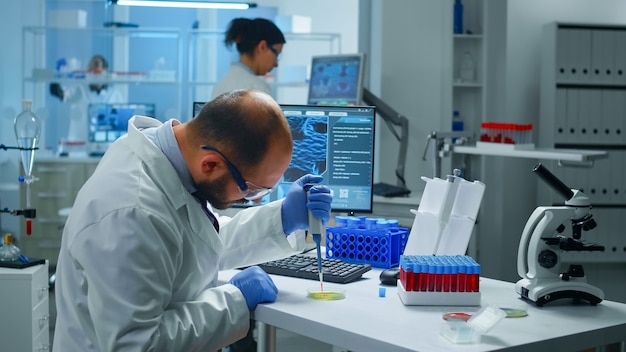Collaborative Initiatives and Partnerships for Sustainable Growth in the Pharma SME segment

In the complex landscape of sustainability transitions, collaborative initiatives and partnerships emerge as powerful catalysts for small and medium enterprises (SMEs) in the Indian pharmaceutical sector. These collaborations not only help in sharing resources and knowledge but also create a collective momentum towards sustainable practices that individual SMEs might find challenging to achieve on their own.
Industry associations play a pivotal role in fostering collaboration among pharmaceutical SMEs. Organizations like the Pharmaceutical Export Promotion Council of India (PHARMEXCIL) and the Bulk Drugs Manufacturers Association of India (BDMAI) and Federation of Indian Export Organisations (FIEO) are instrumental in creating platforms for knowledge sharing, best practice dissemination, and collective advocacy for sustainable policies. These associations often organize workshops, seminars, and training programs focused on sustainability, helping SMEs stay informed about the latest trends, technologies, and regulatory requirements in sustainable pharmaceutical manufacturing.
Partnerships between SMEs and larger pharmaceutical companies are becoming increasingly common in the pursuit of sustainability goals. These collaborations often take the form of mentorship programs, where larger companies with more advanced sustainability practices guide SMEs in implementing similar initiatives. Such partnerships can provide SMEs with access to expertise, resources, and sometimes even financial support for sustainability projects that might otherwise be out of reach.
Research collaborations between pharmaceutical SMEs and academic institutions are driving innovation in sustainable manufacturing processes. These partnerships often focus on developing green chemistry techniques, exploring bio-based alternatives to traditional chemical processes, or optimizing waste management strategies. By tapping into the research capabilities of universities and research institutes, SMEs can stay at the forefront of sustainable technological advancements without bearing the full burden of R&D costs.
Supply chain collaborations are crucial for enhancing overall sustainability in the pharmaceutical sector. SMEs are increasingly engaging in collaborative initiatives with their suppliers and customers to create more sustainable value chains. These efforts might include joint projects for reducing packaging waste, optimizing transportation logistics to reduce carbon emissions, or developing more sustainable sourcing strategies for raw materials.
Government-industry partnerships are playing a significant role in accelerating the adoption of sustainable practices among pharmaceutical SMEs. Programs like the Production Linked Incentive (PLI) scheme, while primarily aimed at boosting domestic manufacturing, also indirectly support sustainability efforts by encouraging investments in modern, efficient production facilities. Similarly, collaborations between SMEs and government research institutions can lead to the development and commercialization of sustainable technologies tailored to the needs of the pharmaceutical sector.
International partnerships are opening new avenues for sustainability initiatives among Indian pharmaceutical SMEs. Partnerships with global organizations like the United Nations Industrial Development Organization (UNIDO) or the World Health Organization (WHO) can provide SMEs with access to global best practices, funding opportunities, and platforms for showcasing their sustainable innovations on an international stage.
Cluster-based approaches to sustainability are gaining traction in the pharmaceutical sector. By forming geographical or thematic clusters, SMEs can pool resources for shared sustainability infrastructure, such as common effluent treatment plants or renewable energy installations. These collaborative models not only reduce the financial burden on individual SMEs but also create economies of scale in implementing sustainable solutions.
Digital platforms and online communities are emerging as powerful tools for fostering collaboration among pharmaceutical SMEs. These platforms facilitate the sharing of sustainability-related information, best practices, and even enable virtual collaborations on sustainability projects. For resource-constrained SMEs, such digital collaborations offer a cost-effective way to access expertise and stay connected with sustainability trends in the industry.
Industry initiatives focused on circular economy principles are particularly promising for pharmaceutical SMEs. These might involve partnerships for developing closed-loop systems for material recovery and reuse, or collaborations for creating innovative recycling solutions for pharmaceutical packaging materials.
While such initiatives offer numerous benefits, they also come with challenges such as aligning diverse interests, managing intellectual property concerns, and ensuring equitable distribution of benefits. Successful collaborations often require clear governance structures, well-defined objectives, and a commitment to transparency and mutual benefit.
As the pharmaceutical industry moves towards a more sustainable future, industry initiatives and partnerships will likely play an increasingly crucial role. For SMEs in the Indian pharmaceutical sector, actively seeking out and engaging in these collaborations can provide a pathway to overcome resource constraints, accelerate innovation, and achieve sustainability goals that might be unattainable in isolation.
By fostering a culture of collaboration and open innovation, SMEs can not only enhance their own sustainability performance but also contribute to the broader transformation of the pharmaceutical industry towards more sustainable practices. As these industry partnership models evolve and mature, they have the potential to create a ripple effect, driving systemic changes in the way pharmaceuticals are developed, manufactured, and distributed, ultimately leading to a more sustainable and resilient industry.










